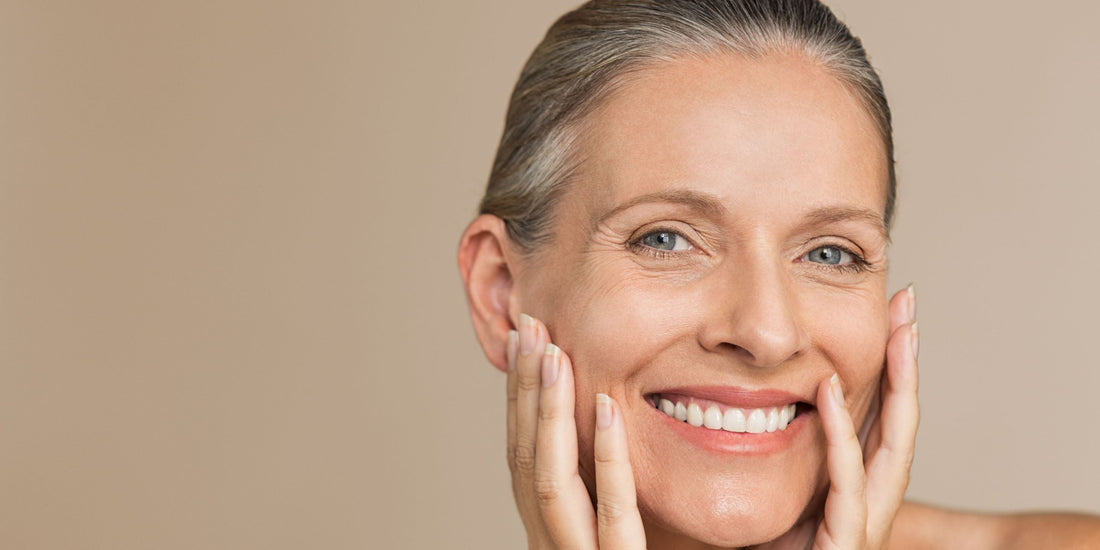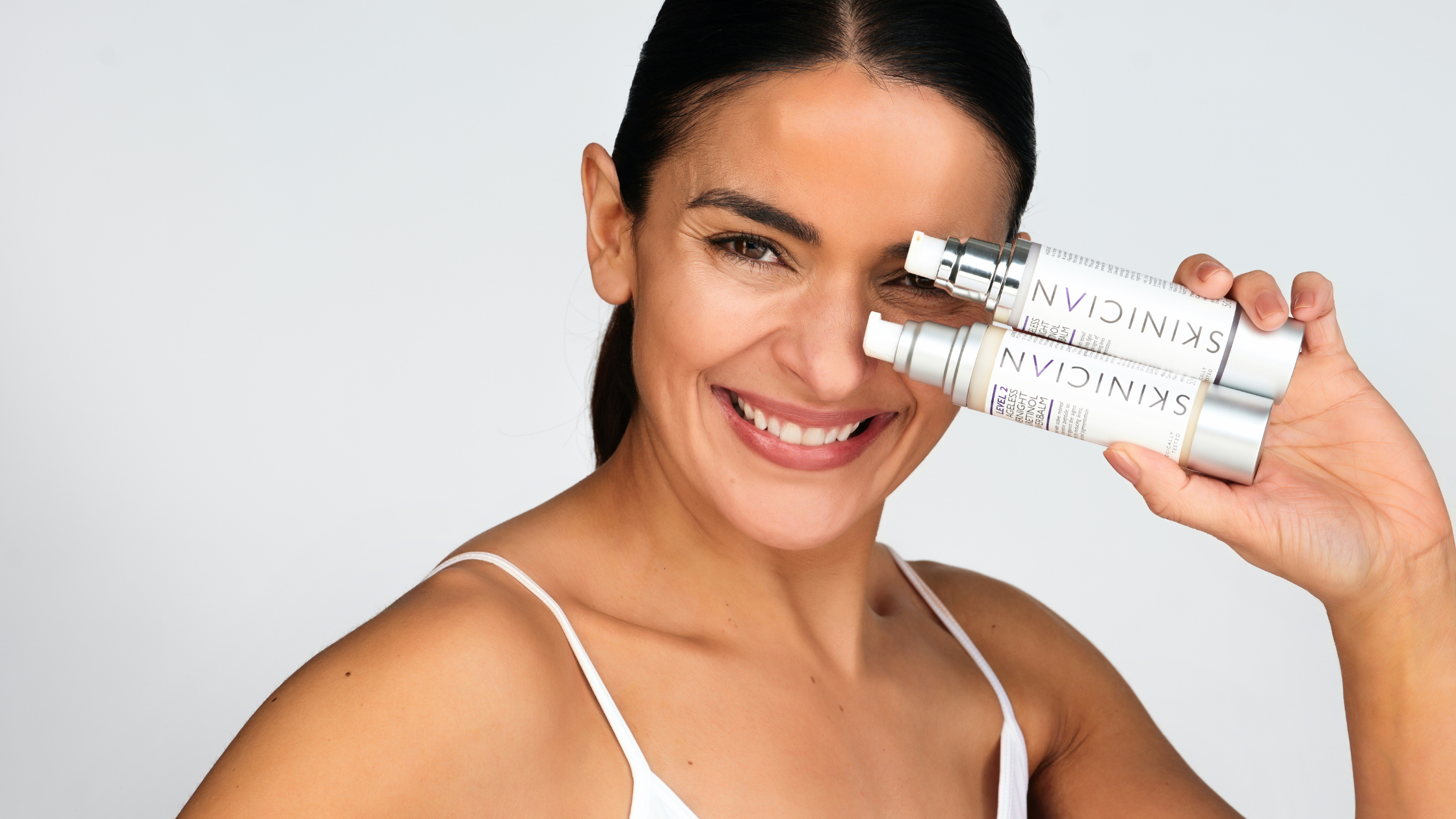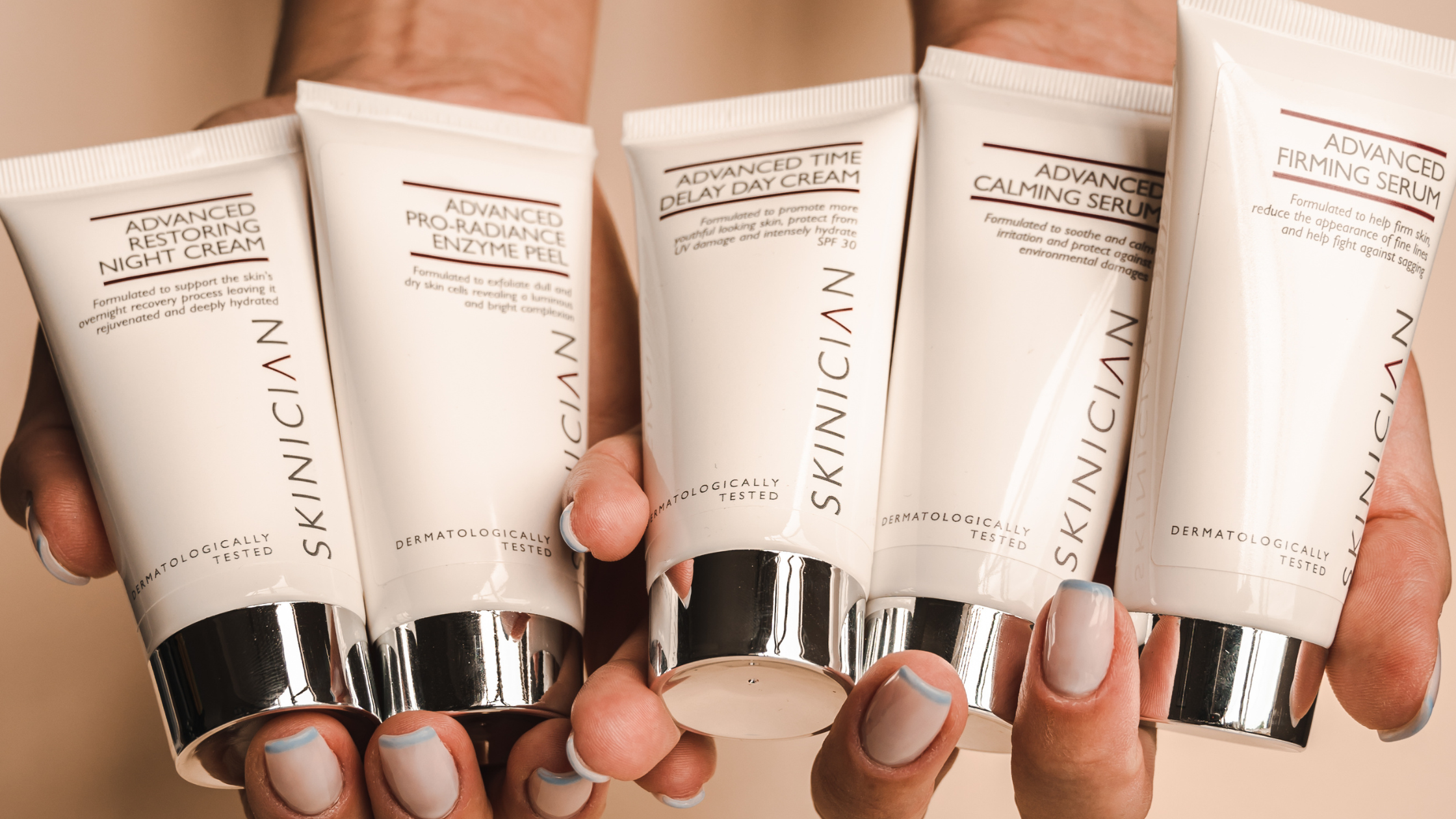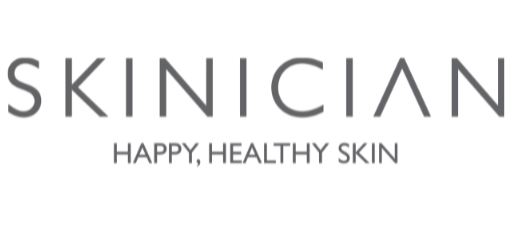
Menopause & Skincare
Share
Your Skin & Menopause FAQs Answered
Take a look at our most asked skincare questions on menopausal skin care.
We get a lot of questions asking how women can change their skincare routines in different stages of their lives, and menopause is no different. We recommend women speak to their healthcare provider for any medical advice but teaming good skincare with a healthy diet and exercising regularly will help with common menopausal symptoms.
Below we look at some of our most asked questions.
- What is menopause?
- What are the menopause symptoms to look out for?
- How do the symptoms of menopause affect the skin?
- Why does the skin change during menopause?
- How can I treat my skin during menopause?
- What are the skin care do’s and don’ts in menopause?
- What SKINICIAN treatment do we recommend?
What is menopause?
The term menopause refers to a woman’s last menstrual cycle, we only realise that we have entered menopause once it has been a year since our last period. Women experience menopause typically between the ages of 45-55, but this can vary depending on any medical conditions, medically induced menopause due to breast cancer or premature ovarian failure that can cause premature menopause.
What are the menopause symptoms to look out for?
Women can spend between 4 to 10 years in early menopause, it can of course be less than that, but it is in these years leading up to menopause that the body begins to experience many physical and emotional changes, for example, hot flashes, night sweats, brain fog and mood changes, just to list a few.
Other common menopause symptoms may include vaginal dryness, weight gain and a lower sex drive.
How do the symptoms of menopause affect the skin?
Some of the main signs of menopausal skin are:
- Skin becomes a lot drier and dehydrated during Peri-menopause/menopause
- Skin can become more sensitive and there is a higher risk of irritation and itchiness
- There may also be more visible blood capillaries in the skin's appearance
Why does the skin change during menopause?
Increased levels of cortisol (our stress hormone) cause the skin to become thinner and more sensitive, while decreased hydration and an impaired barrier can lead to irritation, itchiness and increased risk of dermatitis. You may also suffer from increased vascular permeability.
You can expect to see:
- An increased risk of inflamed breakouts affecting mainly the jawline (Increased Cortisol levels along with testosterone stimulate breakouts around the jawline)
- Skin loses volume and appears thinner
- Pores are more visible and lines/wrinkles appear deeper
How do these menopausal symptoms appear in the skin?
One of the complaints we get from many women in the early stages of menopause is that skin can become increasingly dehydrated and dull.
This happens due to lowering oestrogen levels which leads to less 'GAG’s' (the skin's natural hydrator), the skin becomes thinner, dull, dehydrated and cell renewal is slowed. The skin produces less oil due to lowering progesterone levels meaning there is a decline in sebum production causing skin dryness.
Women often forget that it's not only the skin on their face which is effected but also their body; most women complain of very dry hands and cracked skin on the feet.
How can I treat my skin during menopause?
There are lots of changes and not all of them are going to happen to you and your skin at the same time. It is important to adapt your skincare to treat the symptoms. Check out some of our top tips from an expert below.
It's so important to protect your skin and use an SPF daily. Remember that UVA is present all day every day, speeds up the ageing process and damages the blood capillaries as these small blood vessels will be fragile due to the changes in hormones.
Make sure you are using ingredients that contain antioxidants and vitamins to protect your skin from free radical damage - with less collagen and elastin being produced it's important to protect what the skin is producing.
Did you know all SKINICIAN Moisturisers contain SPF 30? Shop our moisturisers online.
To support the skin and slow the signs of ageing, use actives such as Retinol and peptides to encourage and increase production in these important skin proteins. Check out SKINICIAN's Overnight Retinol Powerbalm products that have been clinically proven to fade fine lines and wrinkles.

Finally, have on hand products that contain calming and soothing actives for times of sensitivity and irritation.
Skin Concern?
Here are some skin concerns that menopausal skin may experience and our recommended products for treatment.
SKIN ISSUE: Skin becomes a lot drier and dehydrated during Peri-menopause/menopause
The solution:
- Revitalising Cleanser: Soap free, gentle cleanser, skin is left feeling soft, soothed and nourished. Key actives: Grapeseed oil, Chamomile, Green Tea
- Revitalising Toner: Hydrating, antioxidant, soothing and cooling on skin. Key actives: Humectants, Vitamin C, Cucumber
SKIN ISSUE: Acne and breakout-prone skin
The solution:
- Advanced Calming serum: Reduces pain and discomfort of breakouts. Key actives: Soothing Phytocomplex

- Purifying Mask: Can be applied locally to effected areas, reduces discomfort and redness while absorbing excess oil. Key actives: Seaweed, Liquorice, Green Clay, Vitamin E
SKIN ISSUE: skin becomes thinner, dull and dehydrated and cell renewal is slowed.
The solution:
- Time Delay Day Cream: Hydrates, brightens, stimulates and protect from UVR. Key Actives: Hyaluronic Acid, Regenacell™, Sun Cat SPF, Vitamin E.
- Peptide eye complex: Stimulates collagen production, fills deep lines and increases hydration. Key Actives: Spherical Hyaluronic Technology, Dermapep™, Sun Cat.
- Restoring Night Cream: Smoothing, softening, nourishing, stimulating, reparative and hydrating. Key Actives: Regenacell™, Botanical B Glucans, Vitamin E, Aloe Vera.
SKIN ISSUE: Elastin production slows and the elastin protein becomes fragmented.
Lower oestrogen levels lead to round 30% less collagen production in the first 5 years of Peri-menopause and a further 2% per year for the next 20 years. Skin's healing is slower and women bruise more easily due to thinning skin. Pores become more visible due to slackening skin.
The solution:
- Firming Serum: Stimulates the production of elastin and ensures the correct structure and placement, while intensely hydrating and plumping. Key Actives: Acetyl dipeptide & vegetable collagen, vitamin E
- Overnight Retinol Powerbalm: Stimulates the production of dermal proteins while slowing down their removal from the skin, boosts cell regeneration, reduces the appearance of pores and treats pigmentation issues. Key Actives: Retinol, Power house peptides.

What are the skin care do’s and don’ts in menopause?
- It's important to avoid using products that may dry out the skin as this will increase the risk of sensitivity, stinging and discomfort.
- Don’t over process the skin – this means taking a balanced approach to your skin, listen to your skin if it feels uncomfortable and reduce the amount of different products your are layering.
- Never forget your SPF.
- Don’t ignore the changes, think about prevention! Weave collagen boosting actives before the onset of early menopausal changes.
- Do work hydrating nourishing actives into your home care.
- Do include daily vitamins.
- Do protect your skin from the elements by layering nourishing products before heading out into harsh winter weather, hot summer climates.
- Do be agile in your approach to your skin and change it up as you need to – i.e. if you occasionally feel red and hot ensure you are using calming and soothing products in your skin care routine.
Which SKINICIAN treatments do we recommend?
It is important that treatments are decided after an in depth consultation analysis with a professional.
If you are dealing with extreme dehydration accompanied by irritation we would advise a SKINICIAN bespoke facial as it will be designed on the day to suit your skin needs.
If it's a stubborn breakout consider one of the Intensive Glycolic peel plus resurfacing treatments.
If its more advanced ageing you are concerned about go for our Ageless AHA Lactic acid as this treatment has been designed to target and treat deeper lines and wrinkles. It offers Renewal - new cell growth and collagen production, Resurfacing – removes dead dulling skin cells, and Reversal – slows down the removal of dermal proteins.

Make sure to tell your Therapist of any underlying medical conditions, hormone therapy or treatments you may be taking so they can best assess the correct treatment suited to you.
For more articles about the menopause, take a look at:
- Our interview with Dr. Anita Sturnham: Handling Menopausal Skin
- Collagen and the Menopause
- Menopause and Skincare

